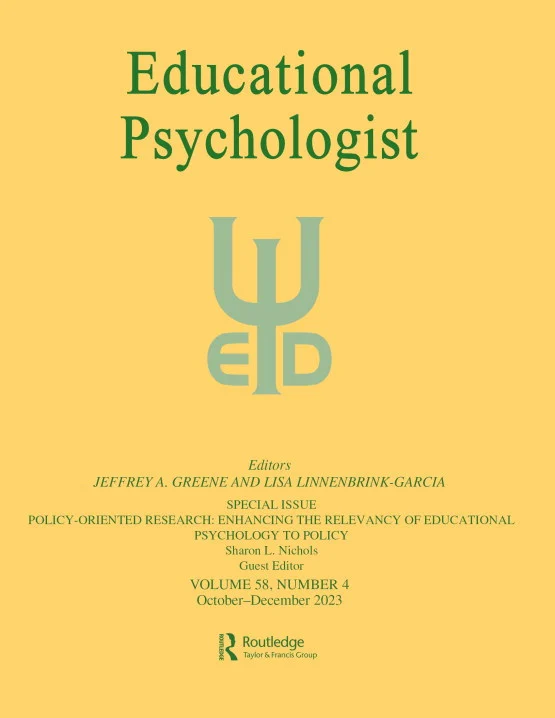走向有效反馈的凝聚力心理科学
IF 11.4
1区 心理学
Q1 EDUCATION & EDUCATIONAL RESEARCH
引用次数: 1
摘要
摘要:关于有效评估反馈的实证研究,不仅不能证明什么有效,而且不能证明如何有效以及为什么有效。在本期特刊“评估反馈的效果和有效性的心理学视角”的介绍中,我们首先综合了自2010年以来发表的关于反馈主题的综述论文的建议。在多个方面,这种综合指出了反馈研究人员的一个明确愿望:反馈研究变得更加科学。在这里,我们赞同这一观点,并提出了一个反馈心理科学可能寻求答案的研究问题框架。然而,我们——以及本期特刊中各种论文的作者——也展示了丰富的科学研究和方法,以及严谨的心理学理论,这些理论已经存在,可以为理解有效反馈提供信息。科学进步的一个障碍是,这些研究和理论严重分散在各个学科的“孤岛”上。本期特刊中的论文代表了心理学研究的不同传统,为严谨的反馈研究必须克服的问题提供了互补的见解。我们认为,一个有凝聚力的反馈心理科学需要在不同的子领域之间进行更好的对话,并更多地使用心理学方法、措施和理论来为循证实践提供信息。本文章由计算机程序翻译,如有差异,请以英文原文为准。
Toward a cohesive psychological science of effective feedback
Abstract Empirical research on effective assessment feedback often falls short in demonstrating not just what works, but how and why. In this introduction to the special issue, ‘Psychological Perspectives on the Effects and Effectiveness of Assessment Feedback,’ we first synthesize the recommendations from review papers on the topic of feedback published since 2010. In multiple respects this synthesis points to a clear wish among feedback researchers: for feedback research to become more scientific. Here we endorse that view, and propose a framework of research questions that a psychological science of feedback might seek to answer. Yet we—and the authors of the diverse papers in this special issue—also illustrate a wealth of scientific research and methods, and rigorous psychological theory, that already exist to inform understanding of effective feedback. One barrier to scientific progress is that this research and theory is heavily fragmented across disciplinary ‘silos’. The papers in this special issue, which represent disparate traditions of psychological research, provide complementary insights into the problems that rigorous feedback research must surmount. We argue that a cohesive psychological science of feedback requires better dialogue between the diverse subfields, and greater use of psychological methods, measures, and theories for informing evidence-based practice.
求助全文
通过发布文献求助,成功后即可免费获取论文全文。
去求助
来源期刊

Educational Psychologist
Multiple-
CiteScore
19.10
自引率
3.40%
发文量
16
期刊介绍:
The Educational Psychologist is a scholarly journal dedicated to exploring the psychology of learning and instruction. Articles in this journal encompass a diverse range of perspectives, from examining psychological mechanisms to exploring social and societal phenomena related to learning and instruction. The journal publishes theoretical and conceptual articles, as well as reviews and meta-analyses, that significantly contribute to theory or advance the methods used to explore educational psychology. Emphasizing innovation and advancing understanding, the journal does not publish articles solely reporting the methods and results of empirical studies; instead, all submissions, including reviews and meta-analyses, must offer clear implications for advancing theory. In addition to regular articles, the journal features special issues that delve into important themes in educational psychology, along with focal articles accompanied by peer commentary.
 求助内容:
求助内容: 应助结果提醒方式:
应助结果提醒方式:


